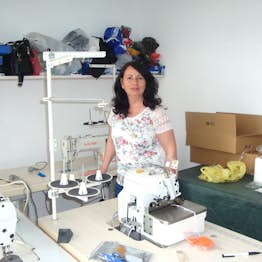Introduction
Kosovo is a historic partner of Luxembourg’s Development Cooperation, which has been supporting the country since 1999, firstly through humanitarian assistance at the beginning of the conflict and then through a development cooperation programme since 2001, investing over EUR 100 million. In terms of rapprochement with the EU, it should be noted that Kosovo is now the only partner of Luxembourg’s Development Cooperation on the continent of Europe. The current cooperation agreement (2017-2020) dates from 24 October 2016 and has a financial envelope of EUR 30 million. In 2019, Luxembourg’s official development assistance to Kosovo amounted to more than EUR 5.4 million. Luxembourg’s Development Cooperation in Kosovo covers, specifically, the sectors of health and vocational training, as well as technical assistance to the Ministry of European Integration.
Read more
A joint commission made up of officials met on 10 December 2020, to take stock of the development cooperation projects that had been significantly delayed due to the continued political instability in Kosovo since summer 2019. The bilateral cooperation agreement (2017-2020) was automatically extended for a year, until 31 December 2021. Luxembourg and Kosovo came to an agreement on the priority actions required in the bilateral projects in the areas of health, vocational training and European integration. With a view to reaching a new bilateral agreement, multilateral projects with UNICEF on home visits in rural areas and the joint UNDP-WHO-UNV project on the effects of pollution on health (Healthier Kosovo) were extended for two years, until the end of 2022, in order to coincide with the closure of the bilateral programmes.
The project with the EBRD has been extended for a second three-year period, until the end of 2023. This project provides technical assistance and advice to micro and small enterprises in Kosovo and was successful in its first phase, reconfirming its relevance in a context such as Kosovo.
Luxembourg’s Development Cooperation will carry out a strategic forward study in 2021 to take stock of its ongoing cooperation programmes and to orient future cooperation and diversification of relations between Luxembourg and Kosovo.
Priority areas of intervention
- Good health and well-being
- Quality education
- Gender equality
- Affordable and clean energy
- Decent work and economic growth
- Reduced inequalities
- Sustainable cities and communities
Kosovo was severely affected by the COVID-19 pandemic. The government reacted swiftly in March 2020 with strict health measures and the coordination by the United Nations of donors’ contributions to the COVID-19 response. Political instability also contributed to the worsening of the pandemic from summer 2020 onward, with recurring waves. Luxembourg’s Development Cooperation was one of the first partners to react and come to the aid of Kosovo, first through the reallocation of funds in its two multilateral projects with UNICEF and the UNDP-WHO-UNV, and then through two new contributions of EUR 1 million respectively, signed with UNICEF and the UNDP. Luxembourg’s contributions have been used to provide vital equipment, including personal protective equipment, ventilators and testing kits. They have also contributed to social assistance to the most vulnerable and poorest groups.
Reference data
- Population (MIO): 1.9
- GNI (per resident): USD 12140
- Life expectancy: 72.1
- Indicative Cooperation Programme: N/A
Key achievements 2020
- A joint commission involving both governments met on 10 December 2020, thus enabling the automatic renewal of the bilateral cooperation agreement (2017-2020) for one year, and consultation on the priority actions needed at the level of bilateral projects in the fields of health, vocational training and European integration.
- In the context of the response against COVID-19, Luxembourg's Development Cooperation was one of the first partners to react and come to the aid of Kosovo, first through the reallocation of funds in its two multilateral projects with UNICEF and the UNDP-WHO-UNV, and then through two new contributions of EUR 1 million, signed with UNICEF and the UNDP respectively.
